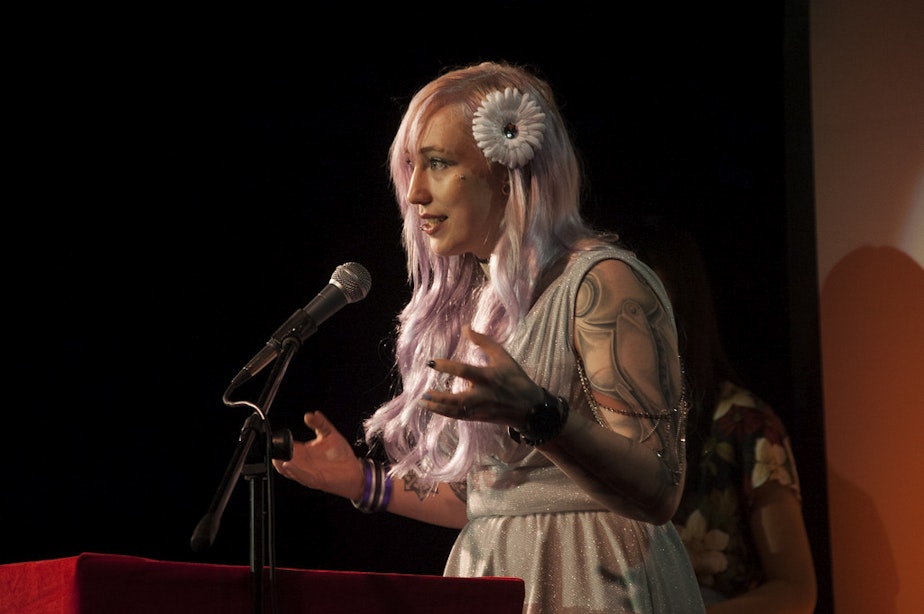Tech companies can’t (or won’t) erase hate. It’s on us

Zoë Quinn is an avid gamer, developer, and artist. In her capacity as author and advocate, she’s launched an online crisis network and spoken before the UN.
But you probably know her best from #GamerGate.
The program of harassment and violent threats was kicked off by a disgruntled former partner and went viral in the worst of ways. Elevated by Breitbart and actor Adam Baldwin, it sparked a bitter debate about misogyny, political correctness, and who really belongs in tech and online spaces.
Quinn's new book, "Crash Override," offers an inside look at the eye of the storm and advice for how we can overcome internet hate.
Though GamerGate started in 2014, Quinn said some people are still surprised by the fact that she’s more than a collection of pixels.
Sponsored
“I hear it all the time: ‘It sounds stupid, but I didn’t realize you were a person,’” she said, speaking with Bill Radke on KUOW's The Record.
She can understand that as she said, GamerGate was never really about her. “I was different, and kind of a convenient, symbolic stand-in for anything people were feeling anxious about.”
Her Twitter handle, @UnburntWitch, references this way in which the internet allows us to burn people in effigy.
But it also has the power to connect in new ways; those who come to games often don’t feel they have anywhere else to go, she said. Their actions may be less about ideology than about finding community. And with community comes the danger of attacking anyone the group sees as an "other."
Quinn’s game, DepressionQuest, attracted users who were struggling with depression, many of whom ended up turning on her, such as the author of a remorseful essay titled “Here Lies My Hatred."
Sponsored
“It’s sad when communities eat their own,” Quinn said. “But the key thing to realize in any mob is that people always see themselves as the good guys.”
Because of this, she can empathize with her attackers to some degree: they used to make up the society she called home. That empathy is not there to excuse, she said, but to understand.
The abuse may be perpetrated by individuals, but in her view it’s magnified by service providers who turn a blind eye. When asked what tech companies can do to fix the problem, her suggestion has nothing to do with greater regulation or policing: They could simply enforce their terms of service.
“There is a vein in tech that defends free speech absolutism to a degree that makes no sense,” Quinn said.
This includes advocating for freedom of expression for rape and death threats, which are not actually protected speech under the U.S. Constitution. Spam, on the other hand, is rigorously policed; she said its removal is a billion dollar industry.
Sponsored
Where hate speech is concerned, then, a consumer protection perspective may pave the road to change. Another option is to find a way to impact tech companies’ bottom line.
“The online world runs on this economy of attention,” Quinn said, and the large companies fueling that can be slow to change. Individuals, however, can bypass corporate institutions – they can drive a shift in culture from the ground up.
“The thing about the internet,” she said, “is we don’t have to wait.”


